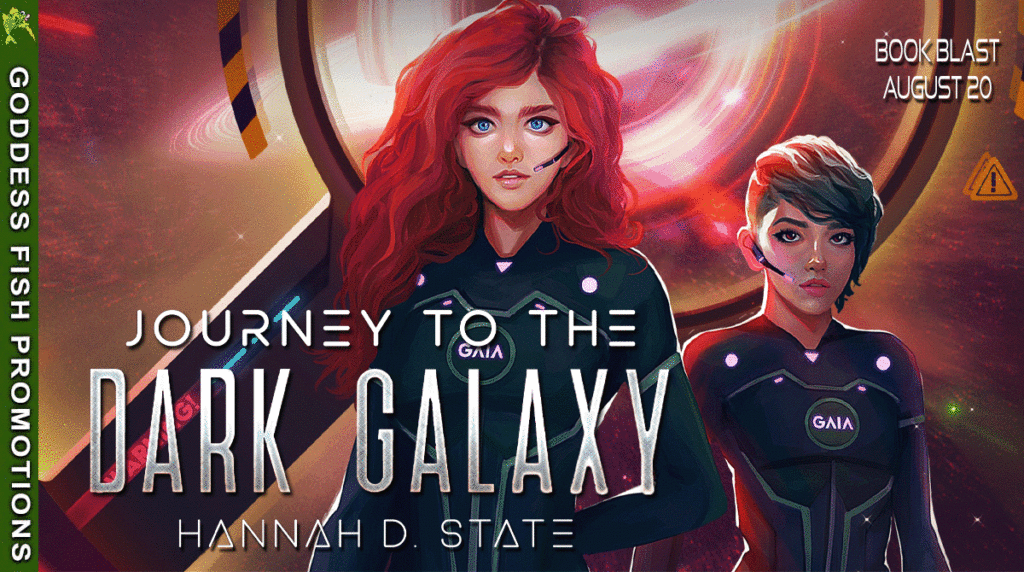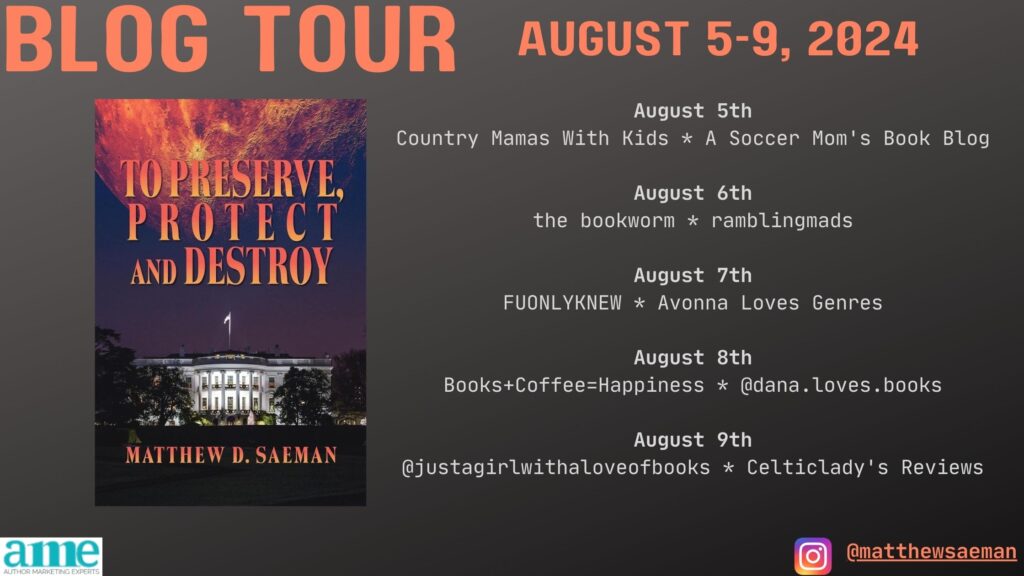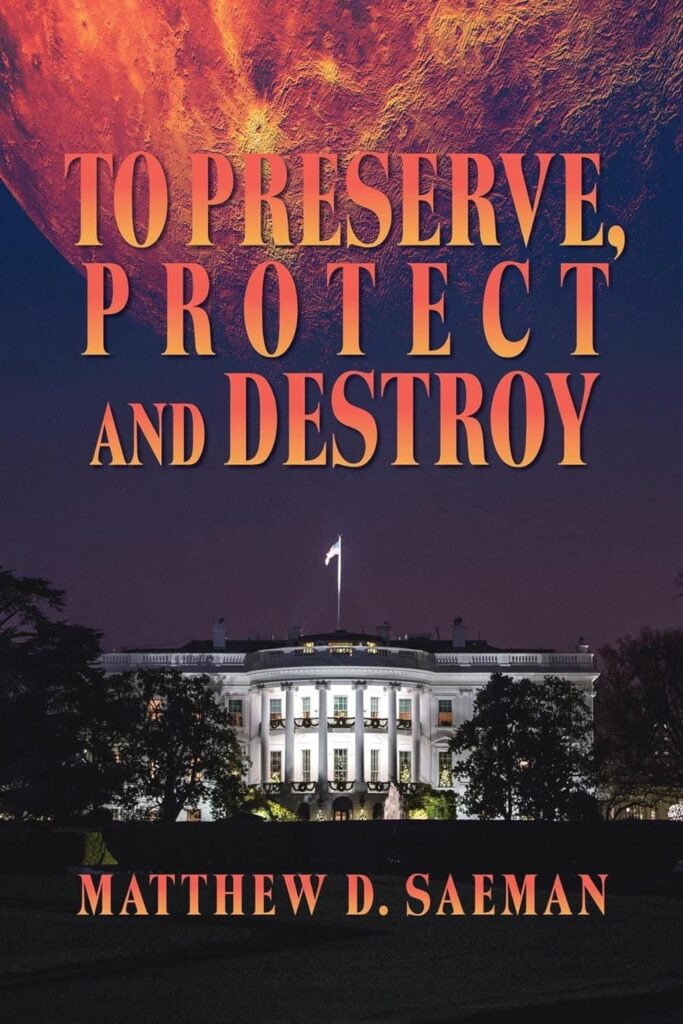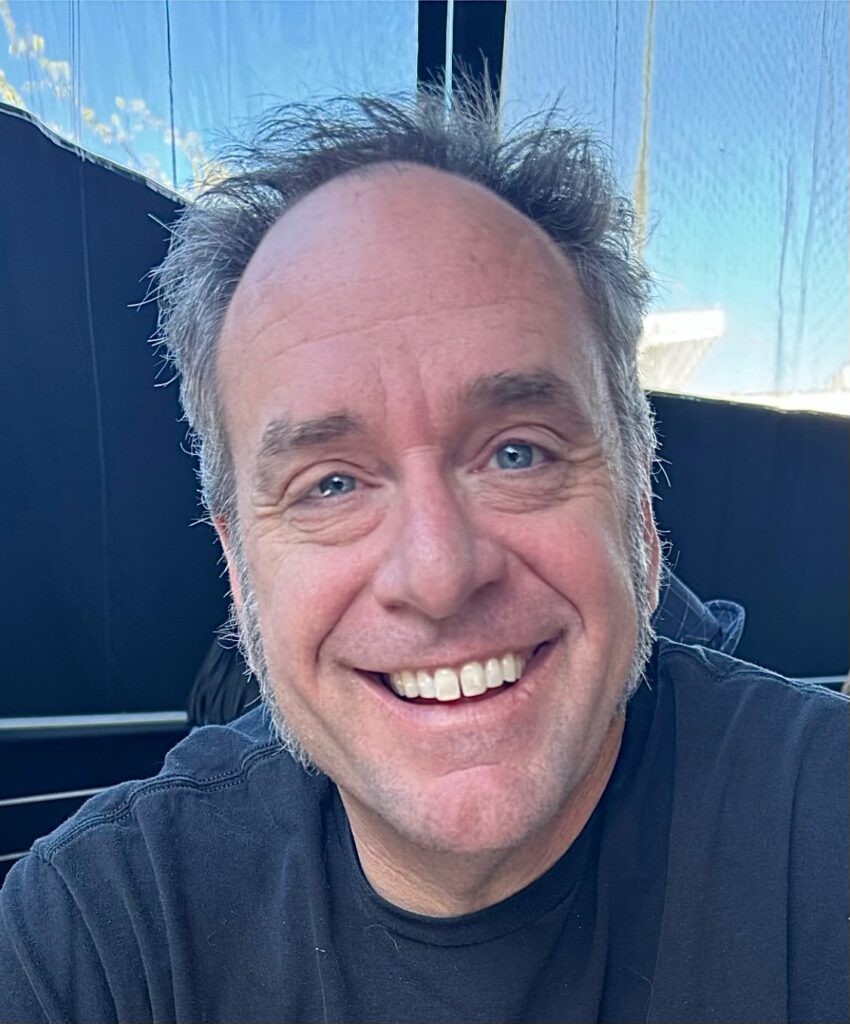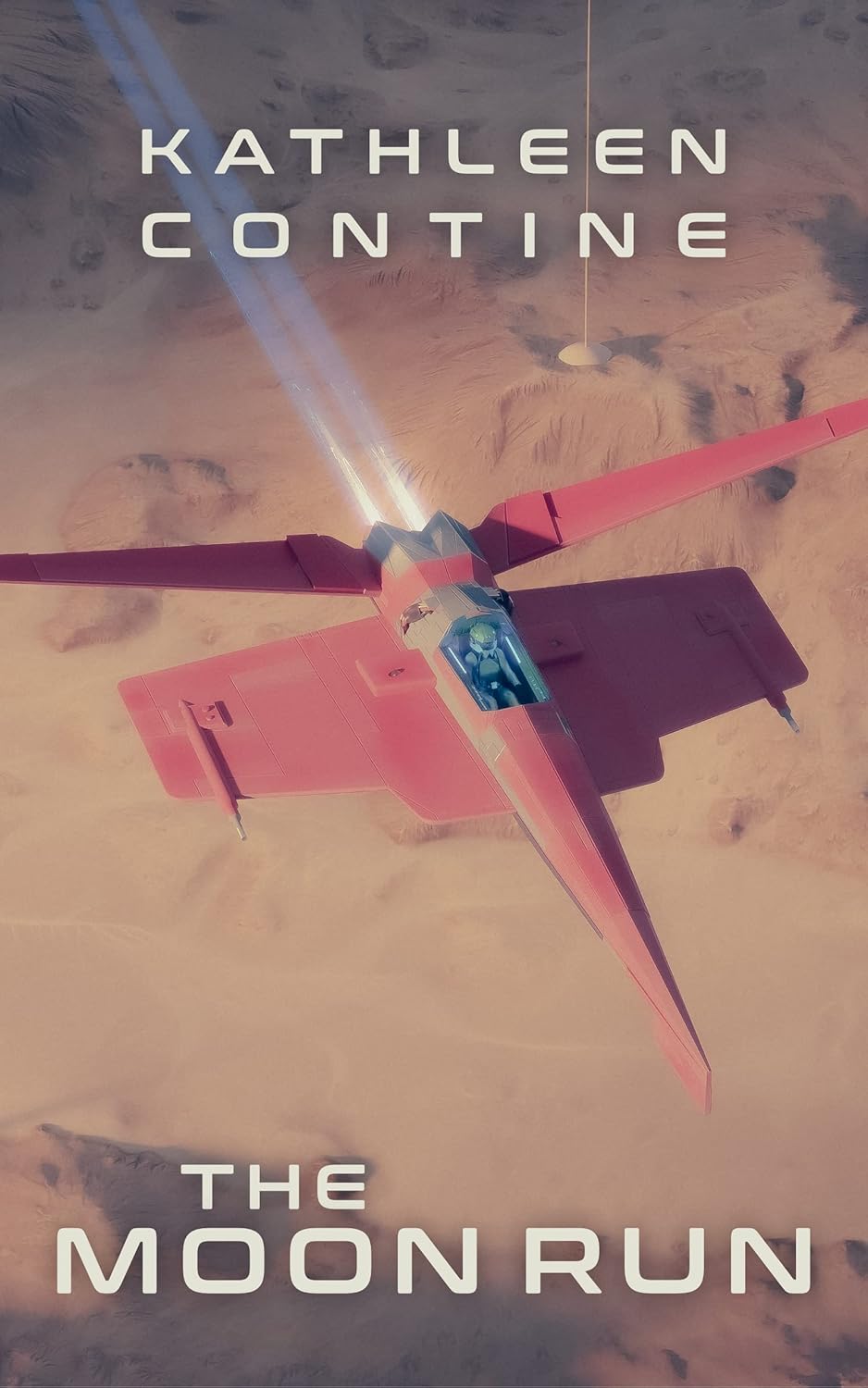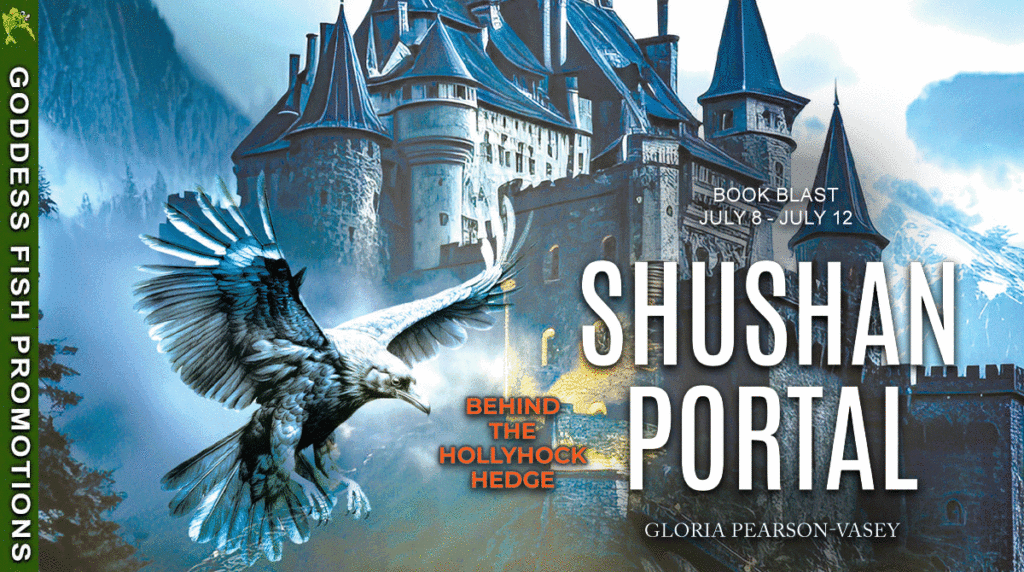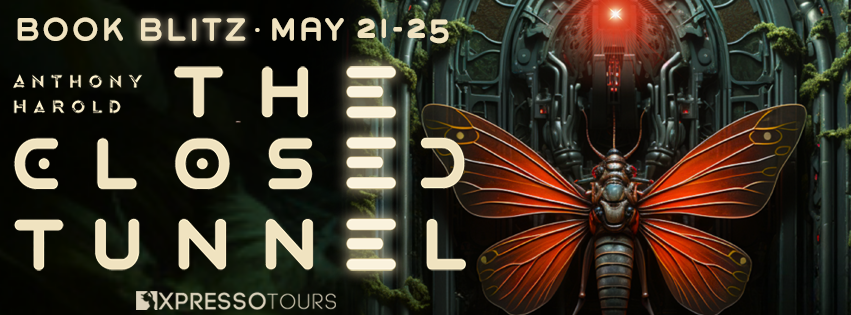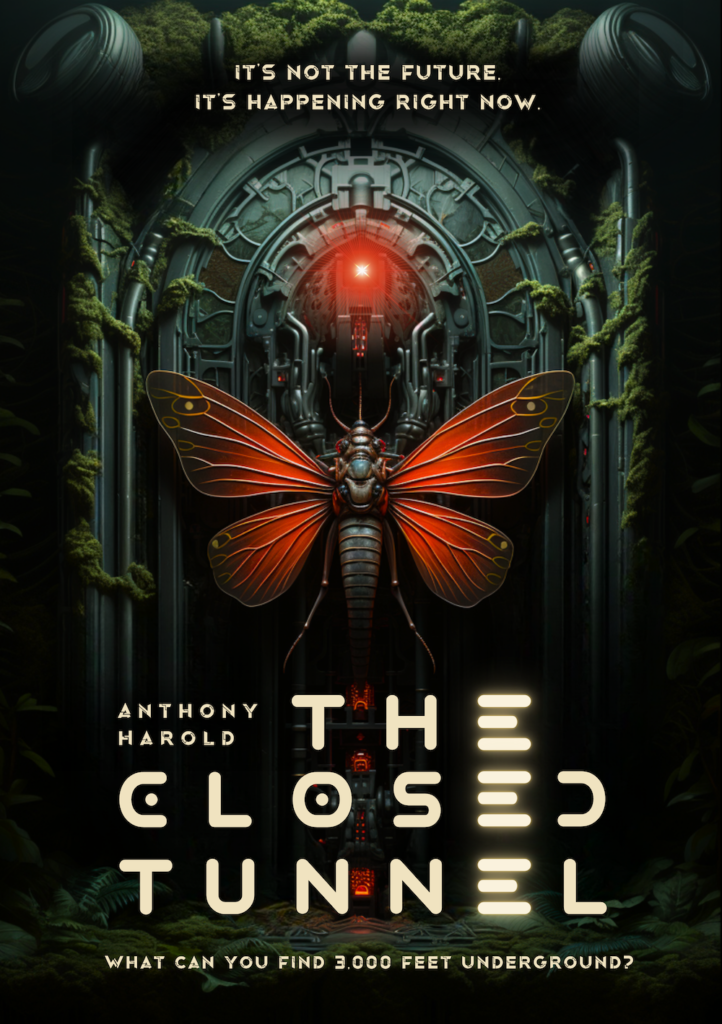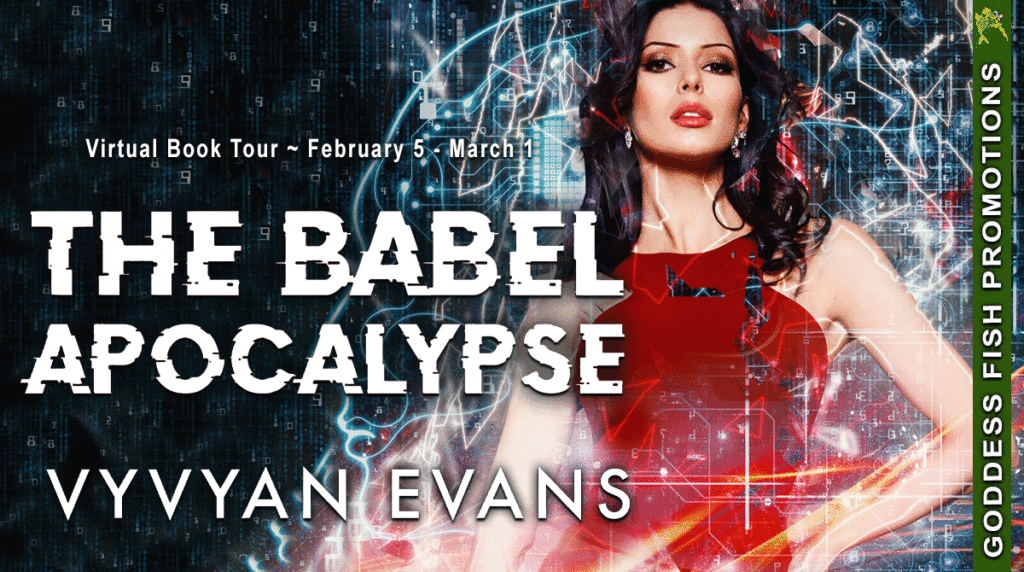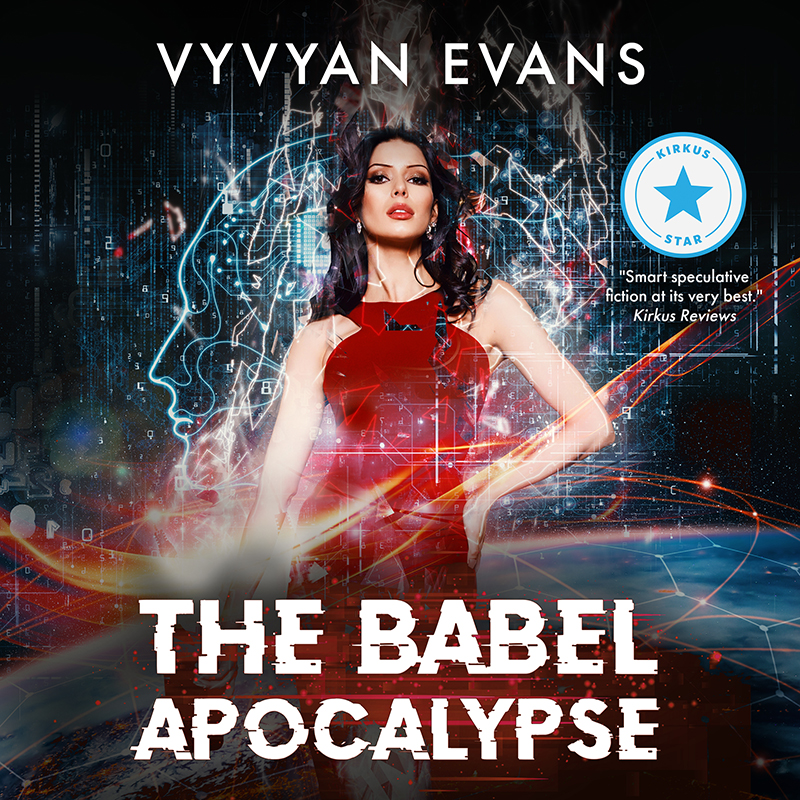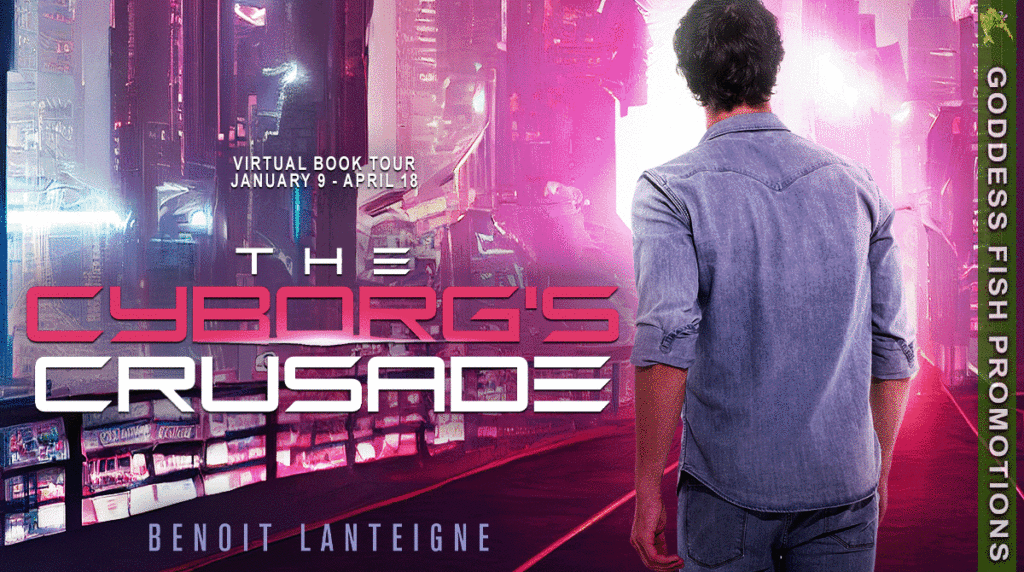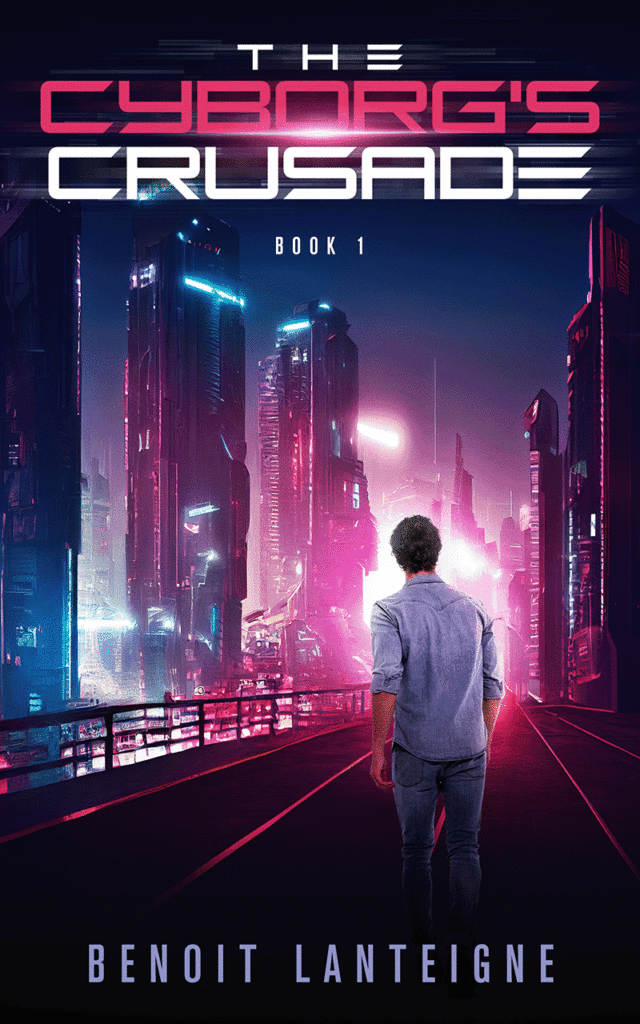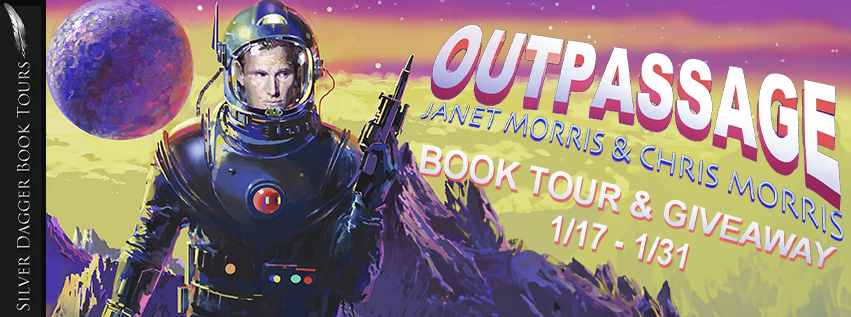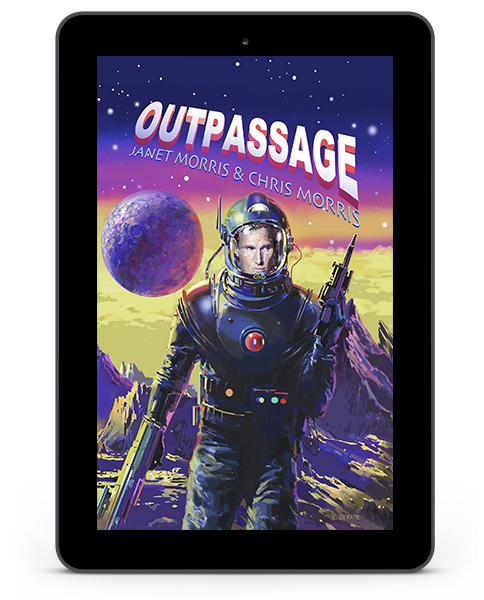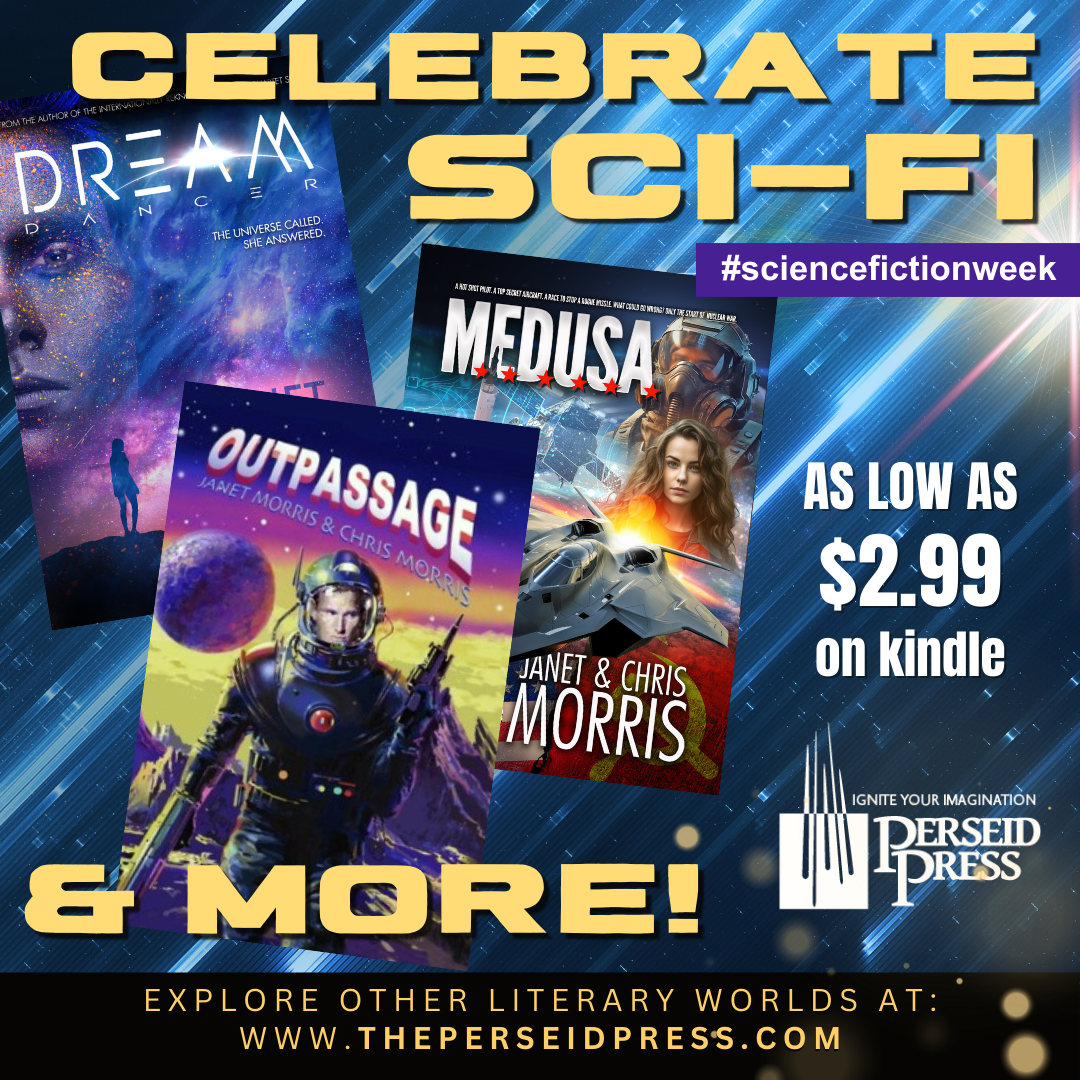.
I am so excited that the paperback
of ANTI-HERO BLUES by Christopher Lee Rippee is available now and that I
get to share the news!
.
If you haven’t yet heard about this
wonderful book, be sure to check out all the details below.
.
This blitz also includes a giveaway
for a $10 Amazon Gift Card courtesy of Christopher & Rockstar Book Tours. So if
you’d like a chance to win, check out the giveaway info below.
.
.
ANTI-HERO BLUES
by: Christopher Lee Rippee
.
Pub. Date: August 16, 2024
Publisher: Balance of Seven
Formats: Hardcover, Paperback, eBook, Audiobook
Pages: 400
.
Find it: Goodreads, https://books2read.com/ANTI-HERO-BLUES
How do you save a world that believes you’re the villain?
In Union City, where superpowered vigilantes are celebrated as saviors, rebellious
grad-student Brandon Carter sees them as anything but. Haunted by the death of
his father at the hands of a masked “hero,” Brandon’s defiance might
have landed him in a jail cell if not for his gift for physics.
At twenty-three, Brandon is on the precipice of success. Using his research, his
team is just one test away from a world-changing scientific breakthrough-a test
that nearly ends in catastrophe due to an “error” in the code.
With the project set for termination, Brandon throws caution to the wind, sneaking back
into the lab to rerun the test in secret. But when a mysterious, powerful
assassin attacks him and sabotages the experiment, a devastating explosion
levels the lab.
Against all odds, Brandon survives, transformed in mind and body. With his life on the line
and no idea who to trust, he sets out to uncover the truth behind the attack,
gain control of his strange, new powers, and protect those he loves-even if it
means saving a world that would label him a supervillain.
Enjoy this peek inside:
.
ONE
.
Failed Experiment
.
You want to know about the explosion and the pillar of
fire in the sky at the Resistance Day celebration? What happened to
Vincent Vaydan? Sure, we’ll get there, but we need to start at the
beginning.
It all went off the rails the day we turned MICSy on.
“Ladies and gentlemen, on behalf of Union City University and
the Vaydan Institute for Experimental Physics, welcome!” Claire’s South London
accent colored her greeting as she smiled at the research review
committee. She was really turning on the charm, which made sense
given that the committee could pull the plug on our project with an
email.
.
That worried me, but not as much as the possibility of
blowing us all up in the next few minutes. My heart pounded against my
rib cage as I raced through the pre-ignition checklist for the twentieth time,
trying to focus. With my hands shaking and a tangled snarl of anxiety,
excitement, and dread roiling in my stomach, I glanced at the
clock.
.
9:57 a.m.
.
Three minutes until the moment of truth.
.
On the dubious bright side, if the test went badly, I
wouldn’t have a lot of time for regrets.
.
“We have what will undoubtedly be an exciting morning
in store!”
.
Dr. Claire Wright was the head of our research team, my
mentor, and basically a member of my family. She was in her fifties,
having spent her life climbing to the top of her field. Despite her
professional stature, Claire was only five foot five in two-inch heels,
and slim. Short, iron-gray hair framed a face that seemed cheery
despite her aura of cool professionalism. As usual, she wore an
elegantly conservative blazer and matching skirt.
.
For our test run, she’d gone with navy blue. A few members of
the research oversight committee were clumped by the door. Most were
watching remotely. We’d expected a better turnout, but I suspected the de
sire to be present for a scientific breakthrough was outweighed by an aversion
to the possibility of sudden energetic events—explosions, for the
nonscientific. Two representatives from the physics department chatted
with the Vaydan Industries contingent, a suit in his late twenties named
Ashcroft and a tall woman I hadn’t met, while Dr. Clifford from the
Department of Energy, a grumpy-looking bureaucrat in a tweed jacket
older than I was, glowered at everyone from behind an impressive
mustache.
.
The lab used to be a bomb shelter, so it wasn’t exactly
spacious. Despite taking every safety precaution imaginable, the chance
of us causing a massive explosion in a couple of minutes was slightly greater
than zero, so it was good we were wrapped in concrete and steel a
dozen feet underground. Unfortunately, it also meant the lab was a
cramped maze of fabrication machines, workstations, and bundles of wiring taped
to the floor. Most of the equipment was impressive, but none of it
compared to the machine in the middle of the room. Claire turned to me and the
rest of the team standing awkwardly in front of the machine that
dominated the lab. “These individuals represent some of the
brightest young minds in our field, and they deserve the real accolades.
Despite my title, all I did was approve purchase orders.” Claire’s smile
turned mischievous. “Rarely in a scientist’s career does one have the
opportunity to take so much credit for doing so little.”
.
The observers chuckled.
.
She gestured to Harvey, who nodded curtly before
looking away.
.
“Dr. Zhang comes to us from the University of Toronto
and specializes in the computational modeling of energetic
systems.”
.
Harvey was pale and thin, with a mop of stylishly
unkempt black hair. Dressed in a tight, black button down and fitted jeans,
Harvey looked more like a model than a mathematician. He’d seemed like an
asshole when we first met, but he just wasn’t great with people. I
wouldn’t have called us friends, but we weren’t far from it.
.
He didn’t smile as the observation group shifted their
collective gaze to him. He made most stoics seem emotionally
unhinged.
.
“Next is Dr. Itzel Rodriguez,” Claire continued. “Dr.
Rodriguez is a mechanical engineer from the University of Mexico, by way
of MIT. She specializes in exotic matter containment and applied
xenotechnology.” Itzel was short, with an olive complexion and a mane of
wavy brown hair, streaked with blue, that surrounded a face with round
cheeks. She was in one of her many science-pun T-shirts, battered jeans,
and Chuck Taylors. Her shirt of the day had a smiling proton telling an
electron to be positive.
.
Itzel’s endless enthusiasm almost made up for her
tendency to sing when she was excited. Nothing helped complex engineering
problems like lab karaoke. Still, I’d put money on her winning a Nobel
Prize.
.
Vibrating with excitement, Itzel beamed when Claire
said her name. “It’s great to meet everyone,” she said, with a hint of a
Mexican accent.
.
Claire pointed to our third team member. “Many of you
already know Dr. Nathan Chambers.”
.
I resisted the urge to roll my eyes.
.
Barely.
.
Nate was blandly handsome, with sandy-blond hair, blue
eyes, and the muscle tone of someone who worked out for looks.
Straightening his salmon polo, he smiled with the casually smug air of a
guy used to being showered with praise. I guess it came with being the
child of a billionaire.
.
Nate was the son and heir apparent of tech mogul
Jeremiah Chambers. His PhD was just part of preparing for his
legacy.
.
As much as I disliked the rich, though, Nate’s money wasn’t
why I couldn’t stand him.
.
The guy was just awful.
.
He ignored Harvey and treated Itzel like a waitress,
but he reserved his real contempt for me. I was the only one in the lab
without a PhD, but that didn’t bother him as much as the fact I’d grown
up poor.
.
The first time we met, Nate had asked Claire if she’d
given all her strays research projects. I’d asked him if he was planning
to be buried in his father’s shadow or just live his whole life in
it.
.
It went downhill from there.
.
As much as I hated the guy, though, Nate was good at
computational physics. It was why Claire had brought him in on the
project, even if his presence was a needle in the heart of my
chill.
.
“And of course, I want to introduce Brandon Car ter.” Claire
gestured to me, her smile expanding with pride. “Brandon came to my
attention years ago, thanks to his high-school physics teacher.”
.
Someone snickered. Maybe they’d been born with an
advanced degree.
.
“While research is a team effort, Brandon’s equations—his
revolutionary way of visualizing and modeling gravitational waves in
tandem with highly energetic systems—are this project’s foundation. The first
time I read the paper that launched all this,”—Claire gestured around the
lab—“a paper Brandon wrote as a second-year under grad, I might add—I thought
it was rubbish, mostly because I didn’t think what he was suggesting was
possible.” Claire chuckled. “When Brandon explained his work to me,
I realized I was holding something extraordinary.”
.
The observers looked at me. Some seemed impressed; others,
dubious or dismissive.
.
I managed not to glare.
.
Whatever they saw, I doubted physicist was the first
word that came to mind. Musician, maybe, if they were being generous.
Armed robber if they weren’t.
.
I was twenty-three and nearly six foot four, with a
wiry build and the colorless complexion of my Irish roots. My hair was
dark, a product of the Korean side of my dad’s family, chopped short and
shaved on the sides. I wasn’t what people called handsome. Striking,
maybe, with deep-set hazel eyes under a heavy brow, a large nose,
prominent cheekbones, and a strong chin.
.
My uniform—a hoodie, band shirt, jeans, and a pair of
boots, all black—didn’t exactly scream scientist. Neither did the tattoos that
peeked out from beneath my sleeves and spread across my hands.
.
If asked, almost anyone who knew me growing up would’ve
said the only way I’d end up in a physics lab was by robbing it. Before
fifteen, I would have agreed. The trajectory of my life hadn’t been aimed
anywhere good.
.
Why?
.
Because a superhero killed my dad when I was eight. If it
hadn’t been for that high-school science teacher sending a paper I’d
written to Claire, I probably would’ve ended up in a jail cell instead of
a lab.
.
Claire smiled again. “Collectively, this team has
accomplished something monumental: the first step in bridging the gulf
between our world and the infinite other worlds beyond.”
.
She waved at the device behind us. “Our machine uses
alien matter to shape a gravitational distortion and generate a
microscopic breach in the membrane separating our reality from others, allowing
us to receive electromagnetic radiation from a nearby multiversal strand.
To put it another way, we’ll be capturing radio signals from
parallel Earths.”
.
The size of a cargo van, our machine might have looked
like a haphazard tangle of wires, cables, and components grafted at random
to a metal frame, but every module, field generator, and dedicated
processor had been custom built for this experiment. Collectively,
it represented three years of my life and more than $9 million of
funding.
.
The machine’s official name was the Multiversal
Intermembrane Communication System. We called her MICSy.
.
MICSy wasn’t pretty, but she didn’t need to be. At her
heart, straining against a xibrantium containment bottle, was a piece of
voidrium the size of a fingertip, capable of generating enough gravity to
punch a hole through the fabric of space-time.
.
Assuming the test didn’t kill us all in the next few
minutes.
.
“That’s right. Some of you traveled two thousand miles
to watch us turn on the world’s most expensive radio,” Claire said,
eliciting more chuckles. “But if we’re successful, the technology will
pave the way for full matter transference.”
.
The multiverse wasn’t a theory. It was a fact made hard
to ignore by the occasional monster attacks and invaders from alternate
timelines. Masks had been known to travel to other multiversal threads,
or parallel worlds, and tread on strange and “undreamed shores,” to
borrow a phrase from Shakespeare. They did it in ways not easily
replicated, however: Magical portals. Falling through black holes.
.
If successful, we’d take a step toward making the trip
easier.
.
“Now, ladies and gentlemen, shall we make history?” Claire
turned to the team and raised an eyebrow. I looked at the clock, my stomach
churning.
.
It was 10:01 a.m.
.
Breaking apart, we headed to our workstations. Har vey and I
were on one side of the room, monitoring the control system and the
voidrium to ensure the exotic material’s energy output remained within
the containment fields’ tolerances. On the other side, Itzel monitored MICSy’s
power system, while Nate watched CPU usage on the control-software
servers to make sure they didn’t crash.
.
I glanced at the team. They seemed as nervous as I
felt, even Nate, who had the least to lose, outside his life. Taking a breath,
I pulled up the ignition sequence. “Everyone ready?”
.
Harvey nodded.
.
“Make it so!” Itzel chirped.
.
“Get on with it, Carter,” Nate groused.
.
“Here we go.” I took another deep breath and clicked
the initialize button.
.
The refrigerator-sized xenotech power block began to
vibrate, and MICSy hummed as she generated a series of overlapping
containment fields. The smell of ozone filled the air, but the
diagnostics showed everything as nominal.
.
“Containment fields on, control system running,” I
breathed. “How are we looking on your end, Itzel?” “Stable. MICSy’s purring
like a kitten.”
.
“Opening the containment bottle and bringing
the voidrium online.” Hoping I wasn’t about to kill us all, I started the
activation sequence.
.
The power block’s hum deepened as the xibrantium bottle
at MICSy’s heart opened. The voidrium inside glimmered with violet light
as energy flowed through it. A stillness filled the room. This was the real
test. If it went well, we’d change the world. If it went poorly . .
. well, we might still change the world, at least on local
topographic maps.
.
“Uh, Brandon, you should look at this,” Harvey
murmured, a ripple of tension in his tone.
.
“What?” I asked, hoping my voice wouldn’t carry to the
observers. Harvey’s calm demeanor was a joke in the lab, which meant the
worry in his tone amounted to hysterics for anyone else.
.
“We’re getting some instability in the voidrium modulation
field.”
.
A chill ran through me. Shit.
.
Voidrium was highly unstable. Investigators had discovered it
among the wreckage of the Rakkari ships that assaulted Earth nearly three
decades ago. The Rakkari had used it for faster-than-light travel, but
research so far had produced no results other than fatal accidents.
Our project was one of a handful authorized to work with the exotic
matter, and only for a brief window of time.
.
Sliding out of my seat, I made my way to Harvey as
quickly as I could without running, weaving around equipment and through
wires. Harvey slid to the side as I stepped in front of his terminal. The
screen was covered in graphs and other monitoring tools that would
have been incomprehensible to most people, but we had designed the
system. I saw what he meant instantly.
.
An alert message flashed in the field control system.
Uh-oh.
.
Voidrium’s energy production rate was unstable.
Previous attempts to harness it had failed due to unpredictable power spikes,
almost as if the voidrium were fighting to break free. To compensate,
Harvey and I had created an algorithm to predict energy fluctuations
and modulate the overlapping containment fields in real time.
Without it, we couldn’t have put enough power into the voidrium to
penetrate the membrane separating our reality from other multiversal strands without
it exploding. Some of the best computational physicists at the university—and
by extension, the world—had reviewed our algorithm. We’d run thousands of
simulations, using data models constructed from other experiments. It
should have been working.
.
Instead, the algorithm was failing to predict nearly a
third of the energy spikes, pushing the field generators to the limit of
their tolerances. Unless we could get the spikes under control, the
generators would burn out. If we lost one, failure would cascade through
the rest, which would be very, very bad.
.
Our theoretical modeling predicted that an explosion probably
wouldn’t generate an ever-expanding singularity that would engulf the solar
system, but it would destroy the lab, along with a significant portion of
the building, not to mention kill everyone inside.
.
No pressure, I thought, breaking into a cold sweat. I racked
my brain, ignoring the voice telling me to shut MICSy off. If I hit the
emergency shutoff, I could check the field generators and debug the
algorithm. I could blame a faulty power relay and use the incident
to demonstrate our rigorous safety protocols. But our research review was
at the end of the month, and there was no guarantee the Department of
Energy would let us keep the voidrium long enough for a second test run.
This needed to work.
.
Suddenly, the solution hit me. My fingers flew across
the keyboard as I threw commands into different windows.
.
“Is there a problem, gentlemen?” Claire asked from
behind me, her normally unflappable cool unable to keep the tension from
her voice.
.
“It looks like the algorithm isn’t modulating the
fields properly,” Harvey whispered. “It’s failing to prevent roughly thirty
percent of the energy fluctuations.”
.
“Shut it down,” Claire ordered. “Immediately.” Harvey reached
for the emergency shutoff.
.
I grabbed his wrist. “Don’t.” We locked eyes. His were wide
with fear. “I’ve got this.”
.
We looked to Claire.
.
“We’re still within tolerances,” I said. “I need sixty
seconds.”
.
Claire’s eyes narrowed, and she glanced at the committee.
“One minute. If the power fluctuations aren’t under control in one
minute, shut it down.”
.
I was typing before she’d finished speaking. Our energy
growth model wasn’t the issue. It had to be a software bug. The night
before, Nate had “fixed” a syntax error I’d supposedly overlooked. I was
guessing whatever he’d done had broken something. I initialized the
previous version of the control software on a backup server. MICSy sent data to
both primary and secondary control systems as a failsafe. I could compare
the readings on the secondary server to the primary and, if there were no
errors in the earlier version, switch to it. The two control systems ran
concurrently, so there shouldn’t be any interruptions. If I was right,
the switch would stabilize the process.
.
The program was system intensive, so it took time to
synchronize. Each second felt like an hour as the diagnostics flashed
alarms.
.
I tried not to think about the consequences of
being wrong as MICSy’s smooth purr shifted into a rumbling growl,
drawing concerned murmurs from our observers. “Apologies, gentlemen!” Claire
flashed them a practiced smile. “It wouldn’t be science without a little
excitement.”
.
Nearly there. Five seconds until the backup came
online.
.
The lights flickered.
.
Four seconds. My pulse pounded in my ears. Three.
.
The grumbling increased. Harsh, violet light radiated from
the containment bottle. The field generators’ output levels began to
redline.
.
Two.
.
The acrid stench of overheating electronics filled the
room. Electricity crackled, and a blue flash, followed by a spray of
sparks, erupted from MICSy. It was only the secondary power relay burning
out. We were still good.
.
One.
.
A field generator blew, sparks erupting from the side
of the machine, but the other generators still worked. The fix was going to
work. I was sure of it.
.
The prior version of the control system finished
initializing. Immediately, I could see I was right. The energy curve
began to smooth out. I switched control systems, and the levels started
to stabilize.
.
“I’ve got it—”
.
Claire hit the emergency override. MICSy sputtered and
went silent as the diagnostic panel flatlined. The stench of smoldering
electronics intensified, and a haze filled the room.
.
People coughed behind me.
.
Shit.
.
About Christopher Lee Rippee:
.
Christopher Lee
Rippee won a young authors contest in third grade, which was the day he
officially decided to become a writer. He prepared by reading comics, playing
too much Dungeons & Dragons, and devouring every sci -fi and fantasy novel
he could get his hands on.
Along the
way, thanks to some great people and a lifelong love of punk rock, Chris found
his way to social work and currently works at a Pittsburgh-based nonprofit.
He’s also a certified mental-health first-aid trainer, has worked as a
neurodiversity consultant for several Pittsburgh-based tech startups, and has
contributed to several tabletop RPG products. When not writing, Chris reads,
plays games, and spends time with his lovely wife, Nicole, and their adorable
rescue dog, Belle.
Website | Threads | Facebook
| Instagram | Goodreads
| Amazon
.

.
a Rafflecopter giveaway
~~~~~
Thanks so much for visiting fuonlyknew and Good Luck!
For a list of my reviews go HERE.
For a list of free eBooks updated daily go HERE
To see all of my giveaways go HERE.












